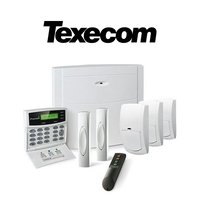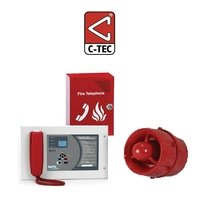Group mode in the Ajax security system is accessible in the UK and other countries

Introduction
As you know, the Ajax security system consists of various devices, such as various detectors, Accessories & Automation, sirens, relays, internal security devices, and smart plugs. Ajax has designed a group mode to make managing them as effortless as possible. The capabilities and instances of group mode in Ajax systems incorporate system devices regardless of their physical zone and make security management more comfortable and pliable.
What is Group mode in the Ajax security system?
Previously, Ajax had limited security modes and individual detectors couldn’t have grouped to protect huge rooms, which was inconvenient for multi-room installation, but Jeweler’s long-range radio technology made it possible to think about those terms. Malevich’s latest Ajax update 2.6 omit these limitations.
Configuring and enabling group mode
User or PRO can enable group mode and configure it with admin rights in the Ajax application. User or PRO can enable group mode and configure it with admin rights in the Ajax application. The number of groups depends on the hub model can be varied.
Group mode is enabled in the hub settings. The number of groups can be varied from 9 to 25 depending on the hub model. After activation, the groups are displayed on the Control tab in the Ajax application. Groups can also be managed using keyboards and key fobs.
Group mode facilities in the Ajax system
After enabling group mode, you will have to virtually divide the detectors into groups. It should be noted that the room settings will stay unchanged. Group mode has new facilities. Normal users see the areas they are allowed to enable/disable. In converse, administrators see it all. With group mode you can also:
- Arm and disarm distinct zones without considering system-wide security mode
- Restrict access to particular areas
- Connect automation scenarios to the security of particular areas
- Monitor who and when disable the security system

Difference between groups and rooms
Rooms: To organize the device, rooms are needed. You cannot link devices to the Ajax security system without the rooms. Rooms’ duty is not to control security modes or allowing certain groups of equipment. The names of the rooms are displayed in push notifications and SMS.
Groups: allow you to arm individual detectors or rooms manually or on a schedule. The group name is shown in the notification text when the group input mode is changed. Group devices can coincide with the room or differ from it.
Benefits of Ajax security system Group mode
Group mode has many benefits and strong security without compromising comfort. The flexible arrangement helps to divide the object into independent parts, each of which will be protected at the right time. in bellow, we will mention some of them:
You can take full control with group mode of the Ajax Security System
You can secure individual rooms, garages, or safes for houses and apartments. Also, you can have complete control over Ajax or restrict access to certain rooms and for your family members, roommates or tenants.
In addition, access to an employee’s offices or authorized areas can be restricted for offices and shops. To do this, assign personal access codes to the security keyboard and determine when and by whom the office can be armed or disarmed.
Using the Ajax PRO application, administrators can enable group mode in the Ajax Security System application or security professionals can do it for their clients. Up to 9 groups can be created, which is enough to protect large buildings of any type.
In addition, access to employee offices or authorized areas may be restricted to offices and shops. To do this, assign a personal access code to the security keypad and specify when and by whom the office can be armed or disarmed.
With group mode of the Ajax Security System while you trust, but can control
Most users grant administrator rights to the security, after connecting the Ajax security system to the central monitoring station company. This can be inconvenient as it also means losing access to useful features. On the other hand, most security companies cannot justify giving full control to users, because they have material responsibility for security operations.
Ajax has therefore made a change by adding and removing groups, rooms, users, detectors, and cameras displayed in the notifications tab. This way, such changes do not go unnoticed. It is hoped that this change will increase the already strong mutual trust between businesses and users.
You can active Night mode for peaceful sleep
Night mode is the same for partial arming. Ajax did some research and realized that partial arming was mainly utilized for night security. So now the name matches the created one. You can enable 24-hour security in the detector settings of each device, set a delay for entering and/or exiting, and enable it in night mode.
Night mode is an arming mode in which the user enables only a portion of the detector. Night mode can work with open, breaking, and movement detectors. Ajax disarms night mode as default. Turn on night mode manually or schedule it before bed and don’t worry about someone sneaking through your door or window while you’re sleeping. With night mode on, you can move freely around your home.

How groups work with Night mode
The created groups do not influence the Night mode. This is a specific mode for perimeter protection when someone is inside. For example, to ensure protection against residents of cottages or apartments at night. For quick access, there are separate buttons for night mode on the remote control and keyboard. Night mode, like any group security, can be activated according to a schedule.
More additions
The incoming and outgoing delays have been moved to the detector settings, and can also be activated in night mode. The Ajax system also adds the ability to specify a second IP address to send an alarm directly to the security company, making the system more reliable.
In SpaceControl settings, key fobs as remotes can now be assigned to a specific user or group. This means that notifications not only show what is on or off but also who is doing it.
Most common examples of utilizing Group mode
There are many examples of how to use group mode. The most common ones are collected for you.
1. Store access control and office security
Access distribution applies to applications and personal passwords and key fobs. Security guards do not have access to the warehouse, and cashiers do not have access to the security room, only those employees who have been given access can disable security.
2. Restricting access to a specific room
Often warehouses with expensive equipment, accounting offices, armories, and safes require further control. Only permit access to the group to trusted users. Add devices from such a room to a group and make them independent of the general security mode. This way, the room is safe even when the entire system is turned off, and the event log records the user who turned it off.
3. Sirens for a specific alarm
Both street and Indoors sirens can signal kind of different alarm types. To do this, divide the detectors into groups of corresponding types. For example, security detectors and street sirens are activated to attract the attention of neighbors and passers-by. When fire detectors are activated, a linked alarm with integrated sirens is sufficient. And a flood detector alarm can trigger a water outage scenario, alerting you in the app without triggering sirens on site.
4. Matching security with work schedule
The working hours of individuals and all departments in the same office often do not coincide. To avoid relying on “last to close the door”, divide office security into groups and assign to users or control devices: keypad or remote control. Each will activate their group’s security at the end of the day without closing the entire office for those remaining. You can also set group security to be enabled on a schedule.
5. Safety when cleaning or repairing
Even during cleaning or repair work, certain rooms can be protected. Combine headquarters with safes in separate groups and restrict access to unauthorized persons. Or protect the living room with valuables while the repair team works in the hallway and kitchen.
Conclusion
The Ajax system internally tested the most unexpected corner cases over and over again. That included, simultaneously setting off detectors in different groups with one siren, combining complete arming with Night Mode, getting sirens to respond to delays, and incorporating key fobs and keypads.
After the tests, they showed the group mode to beta testers and partners. They in turn allowed access to customers and started receiving feedback on Ajax devices. Beta testing has spanned multiple continents and ensures that the new features work well and are easy to use.
Automated scenarios help the system respond instantly to a threat without human intervention. Combine outdoor detectors into a group to separately enable perimeter security (Protect Construction Site). Set up a scenario by alarming these detectors to close electric locks on all doors of the house.










